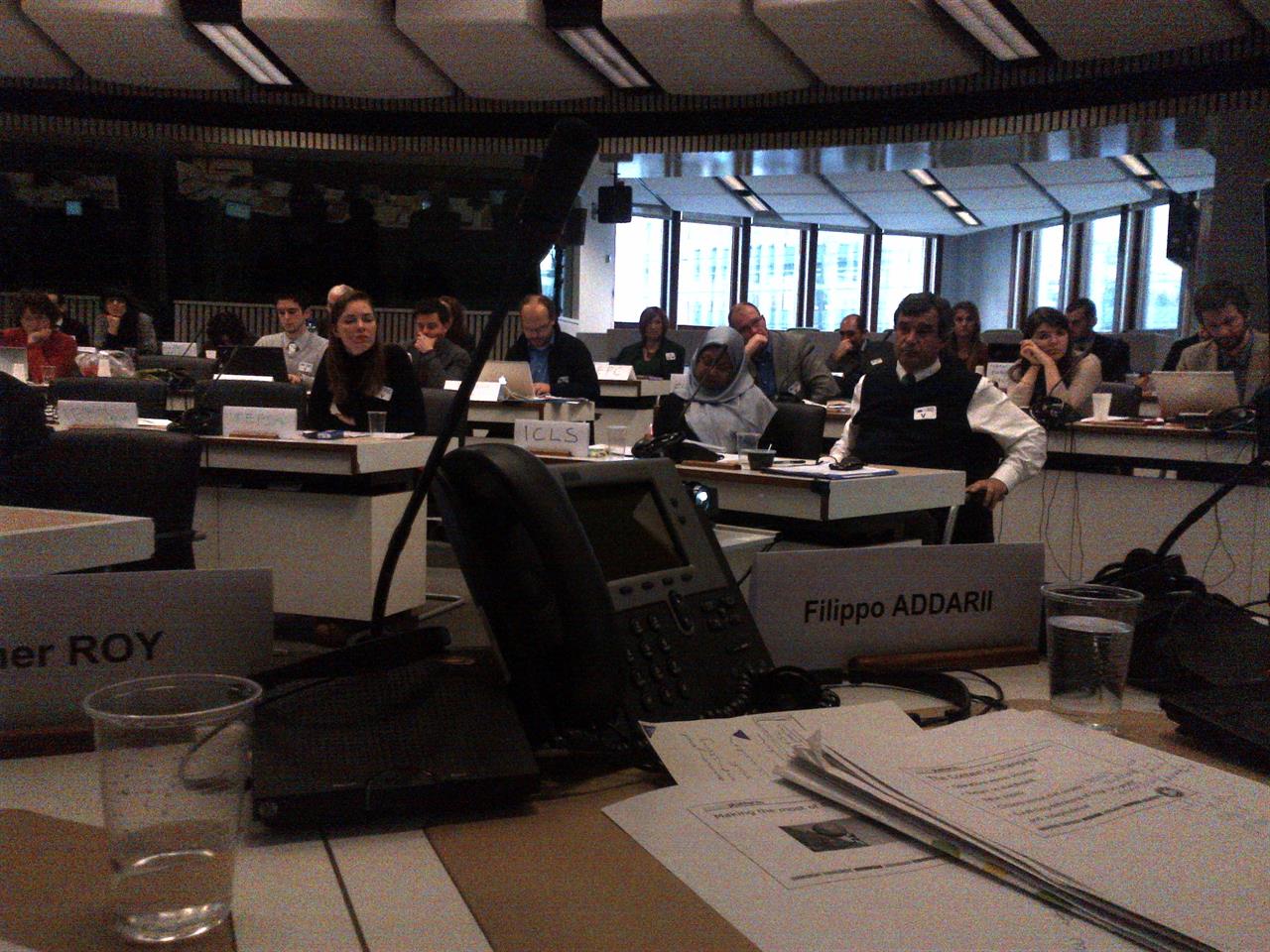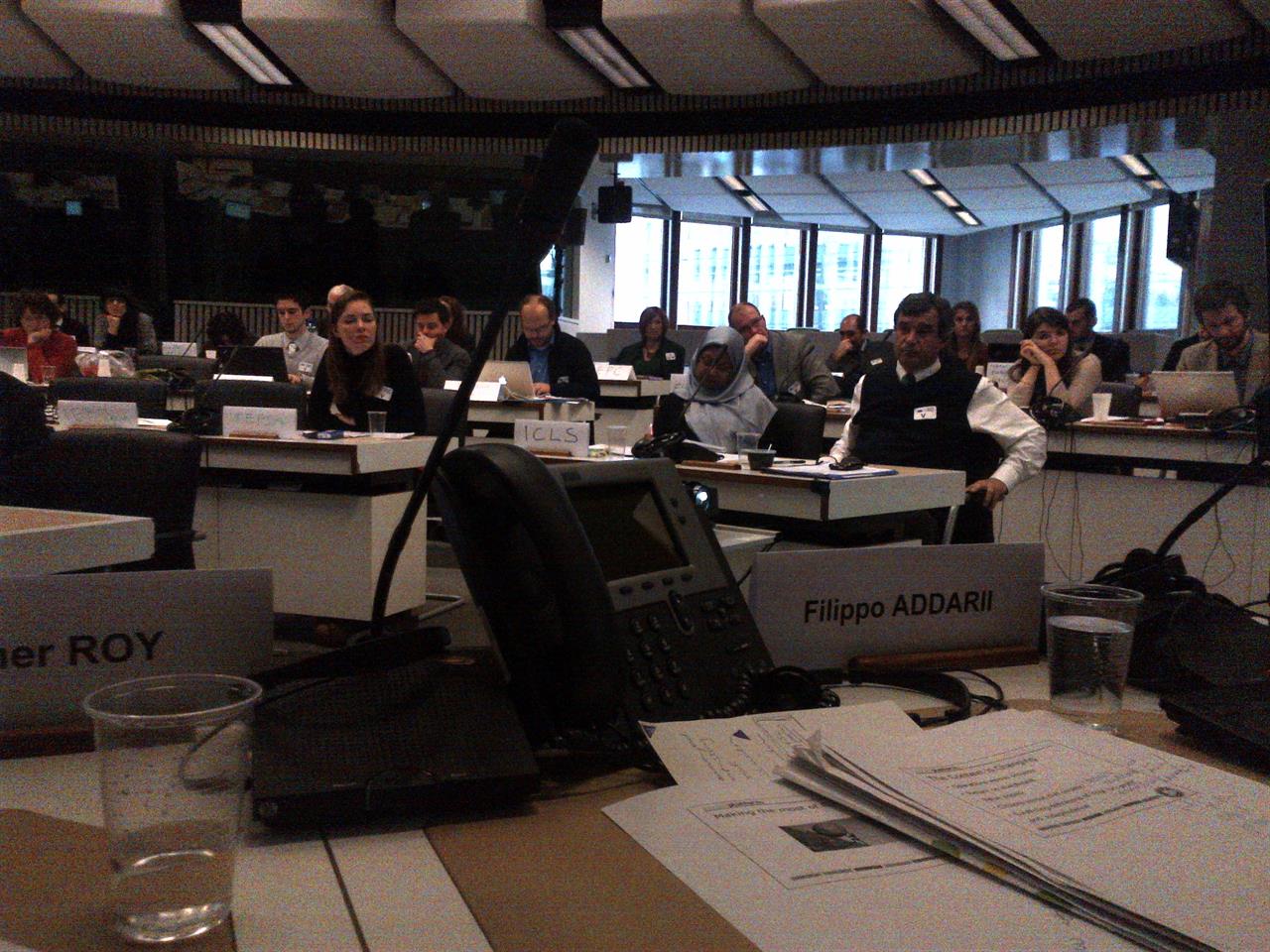
What do you expect to happen to funding for civil society when a third of the seats in the European Parliament will be won by members of euro-skeptic parties? It will be a Big Society for Europe… paraphrasing the agenda of the actual coalition government in the UK which massively cut public spending for social services as they entered government in 2009, causing a mayhem in civil society that for years feasted over Labour’s bonanza.
This is the likely plot to be re-enacted next year following the election of the European Parliament.
Most of the representatives of civil society organisations funded by the European Commission were outraged by the presentation I gave at the Structured Dialogue meeting of European for Citizens Programme (European Commission, DG COM) last Friday… Actually they were angry with the Commission for putting a spotlight on the report.
Unfortunately for them shooting the ambassador or ignoring the accusations won’t save them from the wrath of the people’s representatives. These organisations quartered in the European capital are considered accomplices in the Brussels bubble… and most of them are indeed.
The only solution for them as for any other other civil society organisation is not the defense of vested interests. It’s untenable given the scale of the crisis affecting people. It’s time for an overhaul of their business strategy combined with proof of their realized impact.
On Friday I was invited by the European Commission to present the highlights of Helping Themselves. Six Ways to reform EU Funding of NGO’s, a report on European funding for NGOs and recommendations for reform by New Direction, the think tank connected to the European Conservatives and Reformists parliamentary group. It was meant to be a military exercise in preparation of the upcoming war.
I personally don’t agree with the overall message of the report – and the Commission either – as it is based on market fundamentalism, its conclusions are based on limited research, and partially inconsistent. However, it rings the alarm and exemplifies the tone of the debate that is likely to take off with the new Parliament. Finally, some points are fair.
Civil Society Organisations struggle showing their contribution in wealth creation, and there is no system to prove the return on investment (realized impact). How can you justify this when the Commission is promoting social innovation and entrepreneurship at the same time?
Their independence is in doubt given their little criticism of EU silly expenditures for quangos as EESC and the double see of the Parliament in Strasbourg (total cost of both reaches almost €1bn a year). Further concern is raised considering that many organisations are colluded with politics having policy-makers in their boards.
Their accountability to the public is questionable when their primarily source of funding is the Commission, and their capacity to reach people across Europe is pretty weak given their poor adoption of new technologies.
Most of funding is concentrated in the hands of Brussels-based NGOs, and often there is little transparency on funding allocation to beneficiaries. This is a nonsense in a time of Open Data.
Echoing Maurice (Solidar) my overall recommendation was that civil society organisations must distinguish between Europe and Brussels. They exist to promote the rights and interests of citizens and society as a whole, not defend the benefits of the European bureaucracy.
They must develop the tools to demonstrate impact realized with public funding (including non-financial results), and use new technologies to foster large scale public engagement ie millions of people. They must challenge Brussels’ expenditures when they don’t benefit people, and champion in house efficiency through better coordination and merges if necessary. It’s time to invest in talent, and then claim for bigger budget for citizens.
Surprisingly Ether Roy agreed almost entirely with me. The President of Social Platform was invited to provide an alternative view, but we both ended up encouraging civil society to rethink their mission and business strategy to prepare themselves for the upcoming winter season.
The old school delegates who were planning to pillory the ambassador had to moderate their tone. Ultimately only the strongest and smartest survive through the winter season.
17 centesimi al giorno sono troppi?
Poco più di un euro a settimana, un caffè al bar o forse meno. 60 euro l’anno per tutti i contenuti di VITA, gli articoli online senza pubblicità, i magazine, le newsletter, i podcast, le infografiche e i libri digitali. Ma soprattutto per aiutarci a raccontare il sociale con sempre maggiore forza e incisività.

